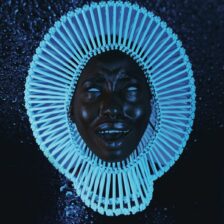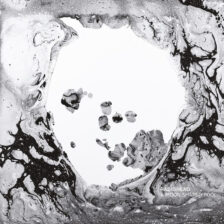“And the old hippie?”
“The old hippie’s out there somewhere, yeah. Gives me a call every once in a while. ‘Hey, I heard your song about me, kid…”
“Did he say that?”
“Uh-huh. Yep.”
“And what did he think?”
“[I said] Just wait until you hear the rest, buddy.”
That is an excerpt from Mac DeMarco’s recent interview on WTF with Marc Maron. Maron is known for his very conversational approach to interviewing, and he and DeMarco laugh throughout the conversation – even when discussing DeMarco’s absent father, the overarching theme of DeMarco’s (technically third) full-length LP, This Old Dog. This attitude is reflective of the album. If there’s anything DeMarco is known for, beloved or despised for, it’s his onstage persona and antics. From vulgar classic rock covers to interviews with his mother, DeMarco’s goofball personality is almost certainly what strikes you first and foremost, but it’s his undeniable penchant for vintage guitar and synth sounds that keeps you invested.









